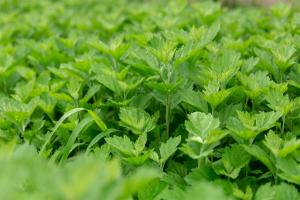Does Tap Water Provide Adequate Nourishment for Plants?
When it comes to taking care of plants, many people are conflicted about whether to use tap water or not. On the one hand, tap water seems like a convenient and straightforward choice for watering plants. On the other hand, some people argue that tap water contains harmful chemicals that can negatively impact plant growth. In this article, we seek to answer the question: does tap water provide adequate nourishment for plants?
Tap Water Composition
Let's start by considering the composition of tap water. In general, tap water is treated with chemicals such as chlorine, fluoride, and chloramines to kill off any pathogens that may be present. While these chemicals are essential for ensuring that tap water is safe for human consumption, they can be damaging to plants. Additionally, tap water may contain minerals such as calcium, magnesium, and potassium, which plants need in small quantities to grow healthily.
Pros and Cons of Using Tap Water for Plants
So, what are the pros and cons of using tap water for plants? On the one hand, using tap water is generally a convenient and low-cost option for watering plants. Additionally, tap water often contains small amounts of essential minerals that plants need, such as calcium and magnesium. On the other hand, tap water can contain harmful chemicals that can damage plant roots and stunt their growth. In some cases, tap water can even kill off plants if the concentration of chemicals is too high.
Alternatives to Tap Water
If you are concerned about using tap water for your plants, there are several alternatives that you may want to consider. One option is to collect rainwater and use it to water your plants. Rainwater is free from the harmful chemicals that are found in tap water, and it often contains natural minerals that can benefit plant growth. Another option is to use filtered or distilled water to water your plants. Filtration systems can remove harmful chemicals and impurities from tap water, making it safer for plants to consume.
Conclusion
In conclusion, the question of whether tap water provides adequate nourishment for plants is a complex one that depends on many factors. While tap water can provide some of the essential minerals that plants need, it can also contain chemicals that can harm plant growth. If you are concerned about using tap water to water your plants, there are several alternative options that you may want to consider, such as collecting rainwater or using filtered or distilled water. Ultimately, the choice of which water source to use for your plants will depend on your individual needs and preferences.

 how many times do yo...
how many times do yo... how many planted tre...
how many planted tre... how many pine trees ...
how many pine trees ... how many pecan trees...
how many pecan trees... how many plants comp...
how many plants comp... how many plants can ...
how many plants can ... how many plants and ...
how many plants and ... how many pepper plan...
how many pepper plan...































